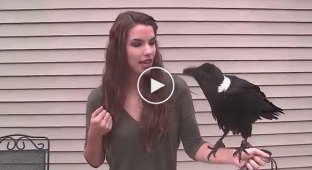Reasons why you shouldn't keep a raven at home (14 photos)
In 2025, owls and ostriches are banned, and parrots are out of fashion. A raven seems like a great alternative: beautiful, talkative, and a great way to hype things up on social media. But before getting a raven, it's worth knowing why it's a bad idea. 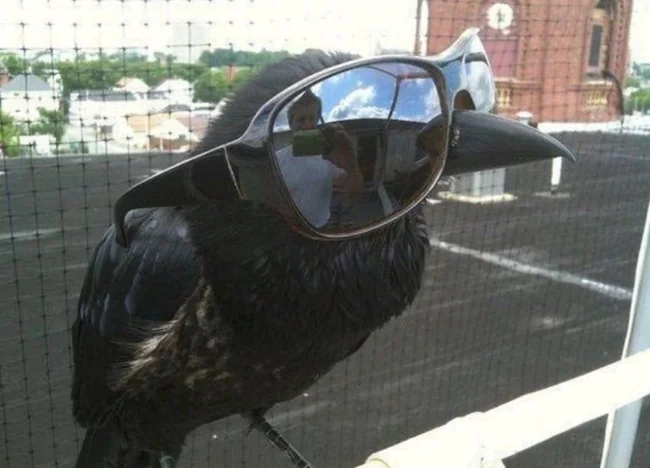
Reason 1. Crows are huge!
Flocks of birds in the city and in garbage dumps are not crows, but ravens. Yes, they are not husband and wife, but two different species of birds. At their best, ravens weigh just over 700 grams, with a wingspan of almost 100 centimeters. They only appear small from a distance, but in reality, they are large and powerful birds, difficult to hold with one hand. The raven we're talking about is two or even three times larger—adults weigh around 2 kg, and their wingspan reaches 1.5 meters! 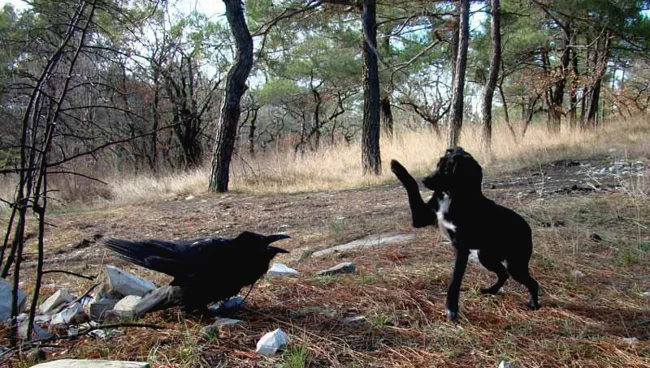
A bird similar in size to a small dog. 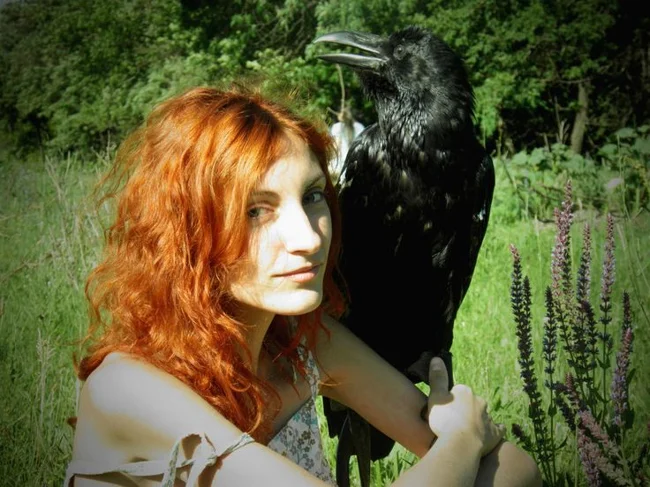
If you hold a raven on your shoulder for too long, the shoulder will likely fall off.
Naturally, no cage is suitable for such a large bird. Even an entire room would be too small. For a comfortable life, a raven needs an aviary! A huge outdoor enclosure where the bird can comfortably fly and stretch its legs. But even so, it's still advisable to let the bird out for a few walks and flights in the wild. And naturally, to keep it from flying away forever, you'll have to spend a lot of time with it first. 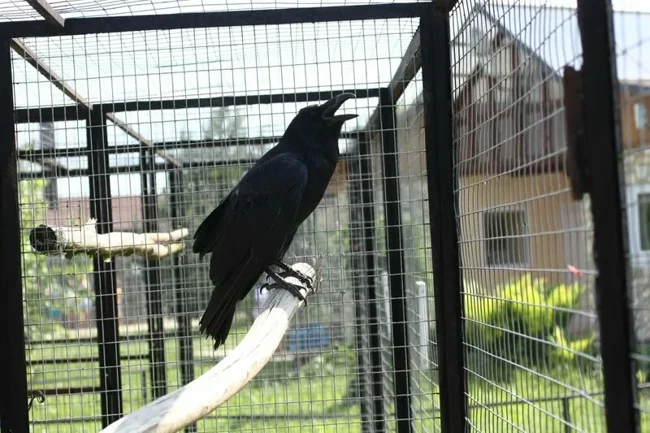
— Boss, let me out to the store, I'll only be there in 5 minutes!
Reason 2. Too smart
Hence reason number two: crows are very smart. It's impossible to train such a huge bird to be orderly by human standards. It won't sit on a perch and pose for pretty photos all the time. Their intelligence is on par with that of great apes, but that doesn't mean they'll happily learn your commands and repeat your words. 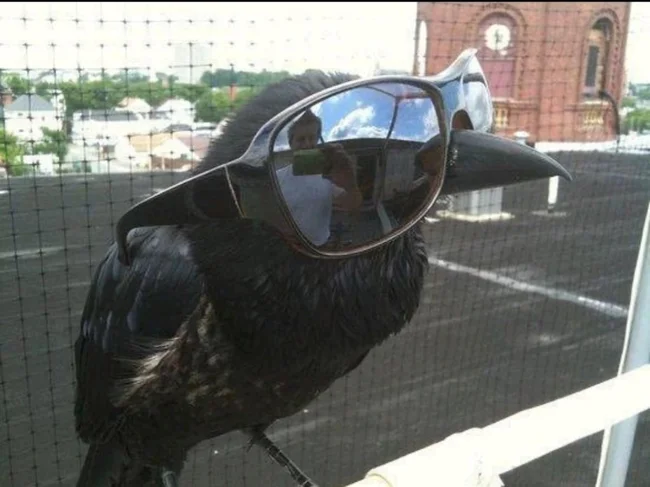
A raven won't necessarily want to pose for you. But if it does, the photos will be stunning.
Crows use their ingenious minds to their advantage. They can tear apart a carefully constructed aviary, destroy a sofa, open a closet and scatter all your belongings, or strip the plaster down to the brick. And they can also outsmart you. 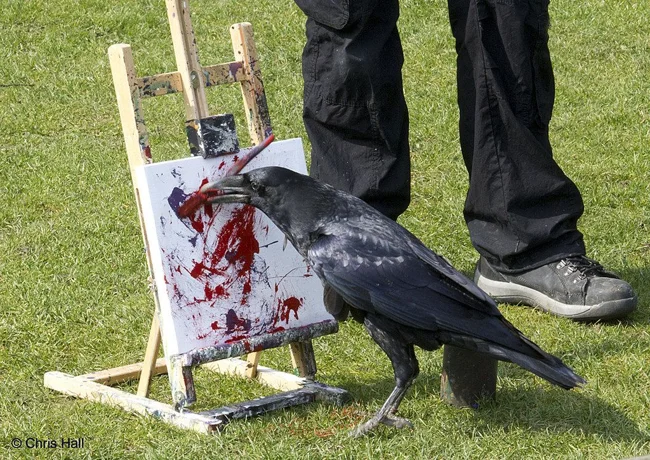
— Now I'll smear whatever I can, and then stupid people will think it's great art, hahaha!
But there are so many videos online of crows repeating words and performing complex commands, understanding their owners instantly! That's true. But behind those few minutes of funny video lies a huge amount of work. To achieve such obedience, you need to spend all your time with the bird! 24/7, training, engaging, and distracting them. Are you ready to dedicate your entire life to a pet for the next couple of decades? After all, crows live for 20-30 years! 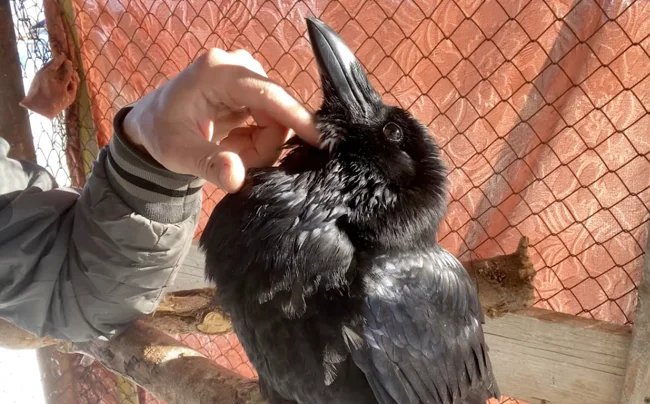
This is Gosha the raven—one of the most famous ravens. It's hard to imagine how much effort and labor his owner put into guiding this bird's mind in a constructive direction.
Reason 3. Crows are predators
If you want your pet to live a long and happy life, you'll need to feed it natural food: mice, frogs, chickens, insects, and fish. Whole fish. Chicken and beef carcass parts are also a good addition. Plus, vegetables, fruits, berries, and nuts, depending on your mood. 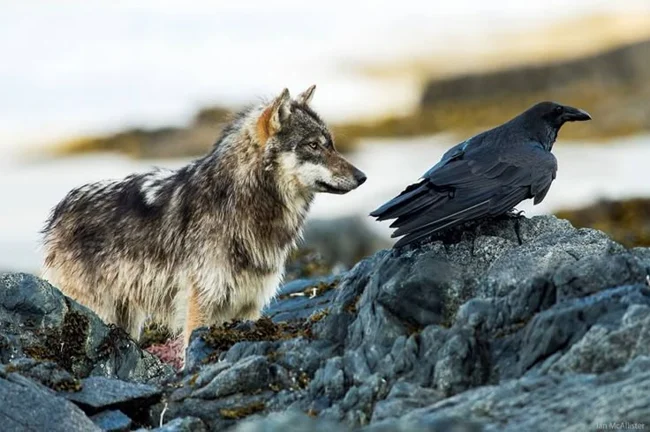
In the wild, crows often coexist with wolves. Crows eat everything the flock doesn't finish.
Fillets, minced meat, and other human foods should not be fed to birds on a regular basis. Carnivores need not only meat but also offal: bones, wool, feathers, and cartilage. Without these, the bird's digestive tract will slowly but surely collapse. 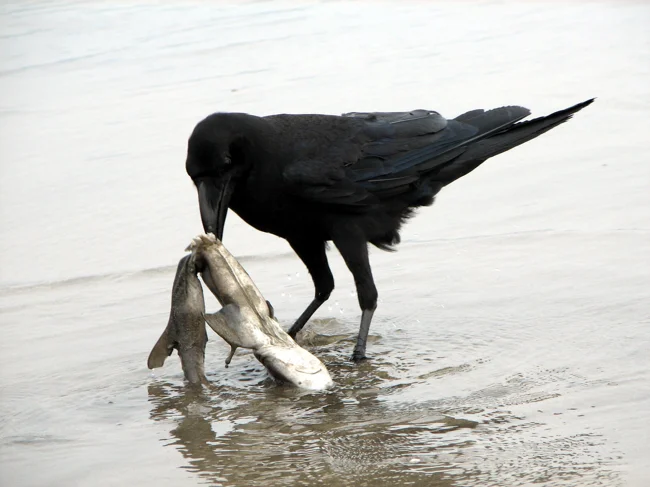
That same fish on sale from Pyaterochka.
By the way, if a bird has eaten its fill, it will hide all the food you gave it for later. It's their instinct. Are you ready for frogs in the closet? Or mice in the duvet cover? Reason number four follows directly from reason number three. Since crows are predators, their toilet habits are anything but rainbow-colored. And they also release this non-rainbow-like waste without warning or ulterior motive every 15-20 minutes. But most importantly: the droppings of birds of prey smell almost exactly like human droppings! It's all because of their meat diet. 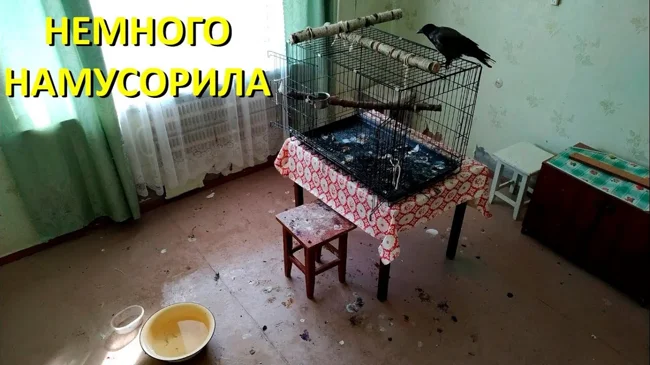
Get ready for your apartment to look something like this. By the way, that's a crow in the photo, not a raven. Remember, these birds are half the size!
Isn't that enough? Then here's another funny thing: bird droppings are runny. This means that when they harden, the poop will stick to the floor. Without cleaning several times a day, your apartment will turn into a pigsty in a couple of days. 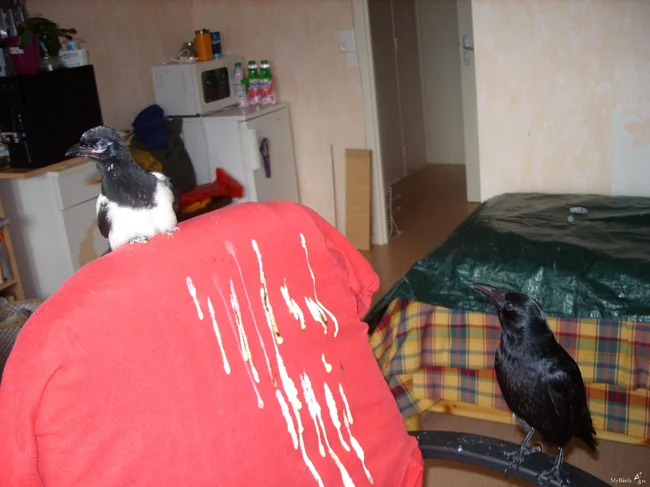
This applies not only to crows, but to all corvids.
Don't even think about bird diapers! These things are completely unsuited to the physiology of birds! Feces accumulate in the diaper, rot, and irritate the cloaca. As a result, the bird's bottom is constantly exposed to waste—hello, inflammation and a host of bacterial infections! Literally. Crows are monogamous by nature, meaning they mate for life and remain faithful. In the absence of other mates, a feathered pet will bond with its owner as if he were a spouse and will "remain faithful." This means that no living creature will approach you without the raven's knowledge! 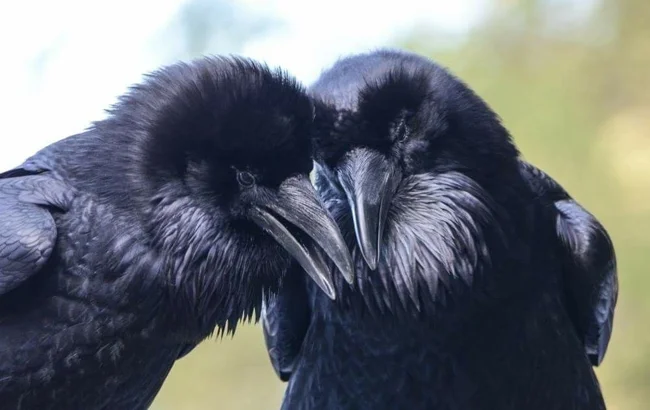
These birds can give master classes on how to maintain peace and joy in the family.
A bird will protect you from family members and other pets: biting, flapping its wings in jealous rages, and plotting all sorts of mischief. Remember, crows are very smart, right? That's why many new crow owners give away their birds at 2-3 years old, just when they reach sexual maturity. The problem is, shelters and zoos are already full to capacity, so how can they afford to take in pets? 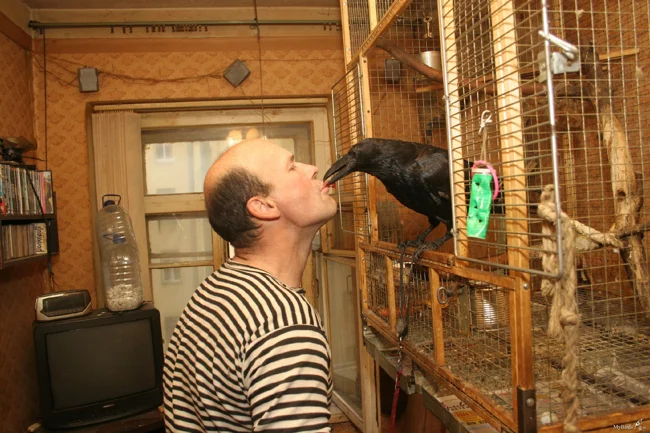
To be fair, those who survive all the hardships gain a loyal friend for life.
But if all this seems trivial to you, consider this. Only a few (if any) professionally breed ravens in captivity. They are expensive and difficult to maintain, and providing everything necessary for breeding is even more difficult. So where do the ravens come from? Demand creates supply: people destroy nests. 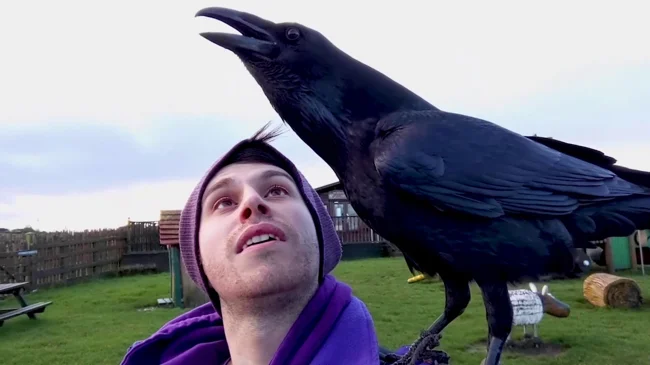
The most important thing in life is to find someone who looks at you the same way this guy looks at his raven.
Yes, sometimes a raven falls into a person's hands accidentally. For example, when a tree falls due to bad weather, and the nest falls with it. But if this happens, it's best not to take the chicks home but to place them in a special center where they'll be trained for life in the wild and then released. If a chick has lived with humans for some time, it's unlikely to be able to adapt to life in the wild.












